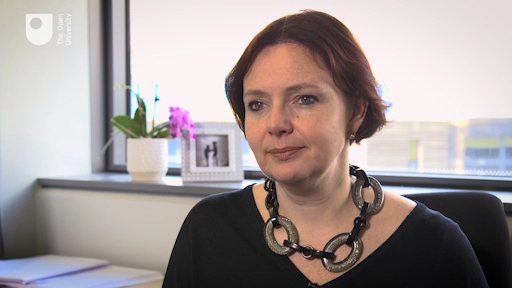2 What can coaching do?
Listen to what Dr Julia Yates has to say about the typical issues that people see a career coach about.

Transcript
One of the most powerful ways to learn what coaching can do is to hear from others who have already experienced it.
1. John and his self-doubt
John was already a successful manager, progressing up the career ladder through a range of increasingly complex roles. He reached a point where he started to doubt his capability and realised that a coach could help him. His goal was to gain more self-confidence and the coach helped him to do that, offering useful techniques and tips. Over the course of a year he used her as a sounding board for his plans and ideas, and hearing her reflect them back to him gradually convinced him that he was competent and effective in his role.
John’s advice for others considering coaching: Do it now!
2. Ginny and her need for change
Ginny was feeling stuck in her job. She knew she needed to change something but felt overwhelmed when she tried to look for answers. Her goal was to feel good at her job again so she had the confidence to explore what the future might hold. Her coach helped her with practical productivity tools and challenged her assumption that she was no good at her job. Over a period of six months she was gradually reassured, and her confidence grew. This enabled her to re-set her expectations about what work could or should be. Shortly afterwards, she made the positive decision to leave her job to set up her own values-based business.
Ginny’s advice for others considering coaching: Don’t do it if you think coaching is the answer – coaching is just the beginning of the answer.
3. Paul and his organisational crisis
Paul was struggling to keep up with both operational and strategic matters. This was especially difficult as he was also managing and restructuring a large team and dealing with crisis management. He had professional supervision and was benefitting from co-coaching with peers but needed to focus on his organisational skills. His coach introduced him to a system he could use to compartmentalise and monitor each distinct area of his work, for example, email, project planning etc. Paul implemented this methodology and it made a huge difference. Now, he can confidently pinpoint the material he needs and plan key tasks regularly and realistically.
Paul’s advice for others considering coaching: Be clear on what you need to achieve and focus on that goal.
4. Rachel and her aspirations
Rachel was in her mid-20s when she first worked with a coach. She had reached a point in her job where she needed new challenges and was starting to wonder whether to stay or go elsewhere. Her coach asked challenging questions about her aspirations and whether they were possible in her current context. Her coach listened and shared observations and that allowed Rachel to see herself differently. It became clear that what she needed was a new job in another organisation and Rachel now felt confident that this was the right decision.
Rachel’s advice for others considering coaching: When approaching a coach, ensure there is rapport, connection and trust. If you don’t get on, get another coach; a lack of fit doesn’t mean coaching doesn’t work.
You can see from these examples that coaching can be beneficial for people at any stage in their career. It can help with specific operational tasks or broader confidence issues, as well as career transitions.
Activity 2 Common themes
Now that you’ve read the four brief case studies, can you see any common themes in the ways that the various coaches helped their clients? Note your ideas in the box below.
Comment
Self-confidence is a recurring theme. John, Ginny and Rachel all needed to find the confidence to progress, and Paul’s self-confidence had been affected by his struggle to keep on top of everything.
Listening and challenging were key to the coach’s role in most of the cases – the exception being Paul where a more solution-orientated coaching style was adopted.
It isn’t always easy to distinguish between executive coaching and career coaching in the workplace, as the issues are often interconnected. Dr Julia Yates explains in the following video.

Transcript
There are numerous stories to tell about how coaching has helped and inspired individuals to make changes and improvements to their life and work. But what makes coaching so effective? In the next section, you’ll start to explore why coaching works.

